The last time that I was here, I was chatting all about the pertinent topic of scarves and how I creatively found a way to organize my scarf collection. While that IS an important topic, the theme of today’s post ranks just a wee bit higher on the priority scale.
After experiencing a close family member’s death earlier this year and then watching my husband pick up the responsibilities (as trustee), I have a new appreciation for how a few steps of careful end of life preparation can ultimately bless our loved ones.
If you own something (which most of us do) and/or if you have a spouse and/or dependent(s) it is imperative that you consider their futures by having a plan in place. Help to eliminate potential problems and stresses, by taking these necessary steps.
Step One – Document
Begin by meeting with a professional and having them advise you on what specific documents you should have in place for your life and estate. Generally there are a handful of critical documents that you should either prepare or have prepared for you. They typically include:
- Will
- Trust
- Life-Insurance Policies
- End of Life Instructions (wishes not covered in your will)
- Health Care Proxy
- Living Will
This is not an exhaustive list and please note that states have their individual laws, so it is best to seek professional support as you draw up these important documents. Don’t take this step lightly, it is better to be over prepared than under prepared.
Step Two – Organize
While having the documents in place is important, it might be even more essential that you organize and store these papers well. Accessibility is key.
Create either a master folder or a box and then keep everything together in a safe and secure place. Options might be a safe deposit box, with your attorney, or a fire safe box in your home.
In addition to the above listed documents, you should also consider adding the following records to your secure holding place:
- Marriage Papers
- Divorce Papers
- Birth Certificate(s)
- Social Security Card(s)
- Military Records
- Passport(s)
- Financial Information
- Digital Information (online usernames and passwords)*
*Digital Information is becoming a much more important component as more and more people store things online, so don’t neglect this piece of vital information.
Step Three – Communicate
This is probably the most critical step! Ensure that you communicate to your loved ones where you have your things stored and how they will be able to access them. Rather this be the location of your safe deposit box keys or the combination to your home safe.
Give them step by step directions on where they would need to start should they ever need to step in. Set them up for success, by lovingly communicating the important pieces of information.
Preparing for the “what ifs” in life is not something we generally want to address, however the responsibility is something you should take very seriously. It is a gift that you can give to your loved ones. A gift that will be appreciated during a difficult season and one that will most likely provide more peace.
To get more helpful tips on how to get all aspects of your life organized, visit Morgan at her website Morganize With Me.
Tags: emergency preparedness, finances, organization
Blog, contributors, filing, finances, Morganize With Me, November 2014, Organize, organize your finances Posted in
5 comments

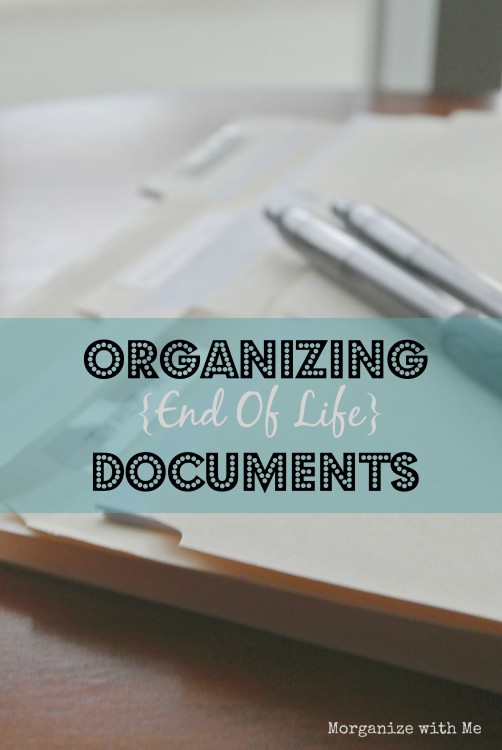





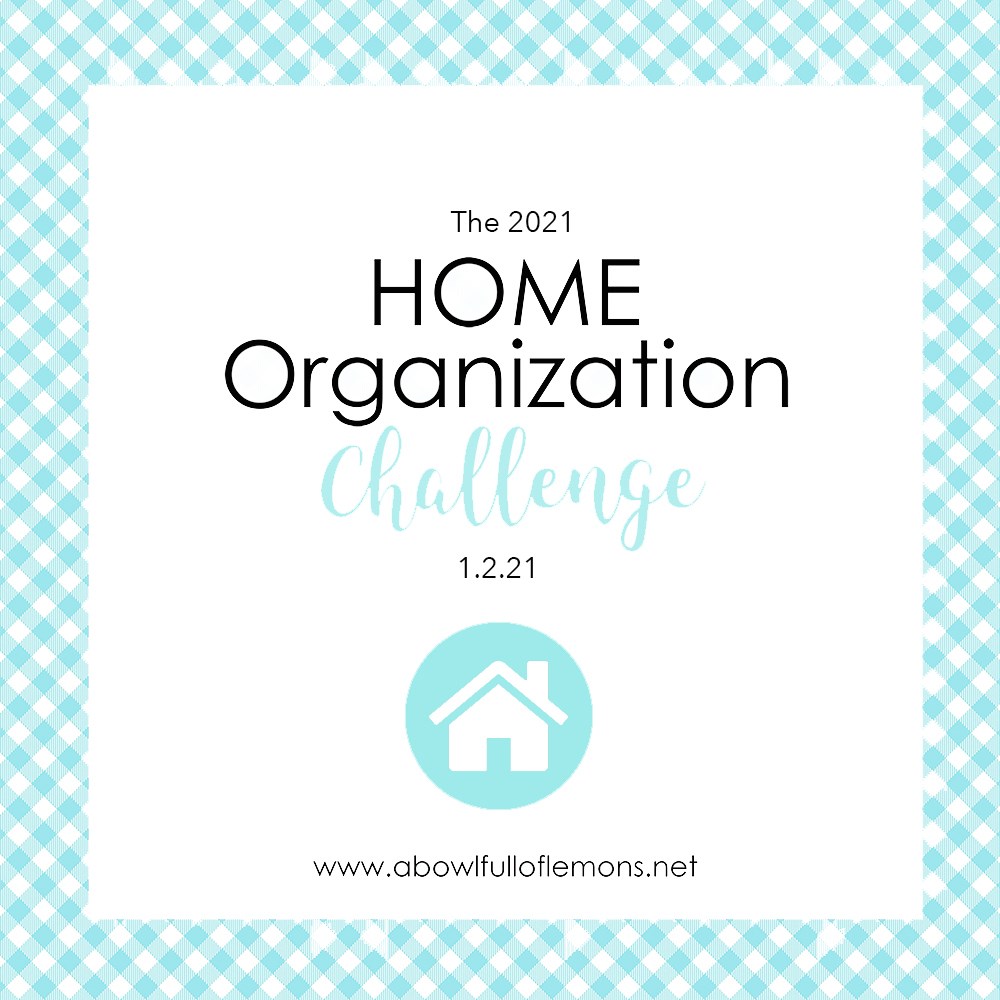
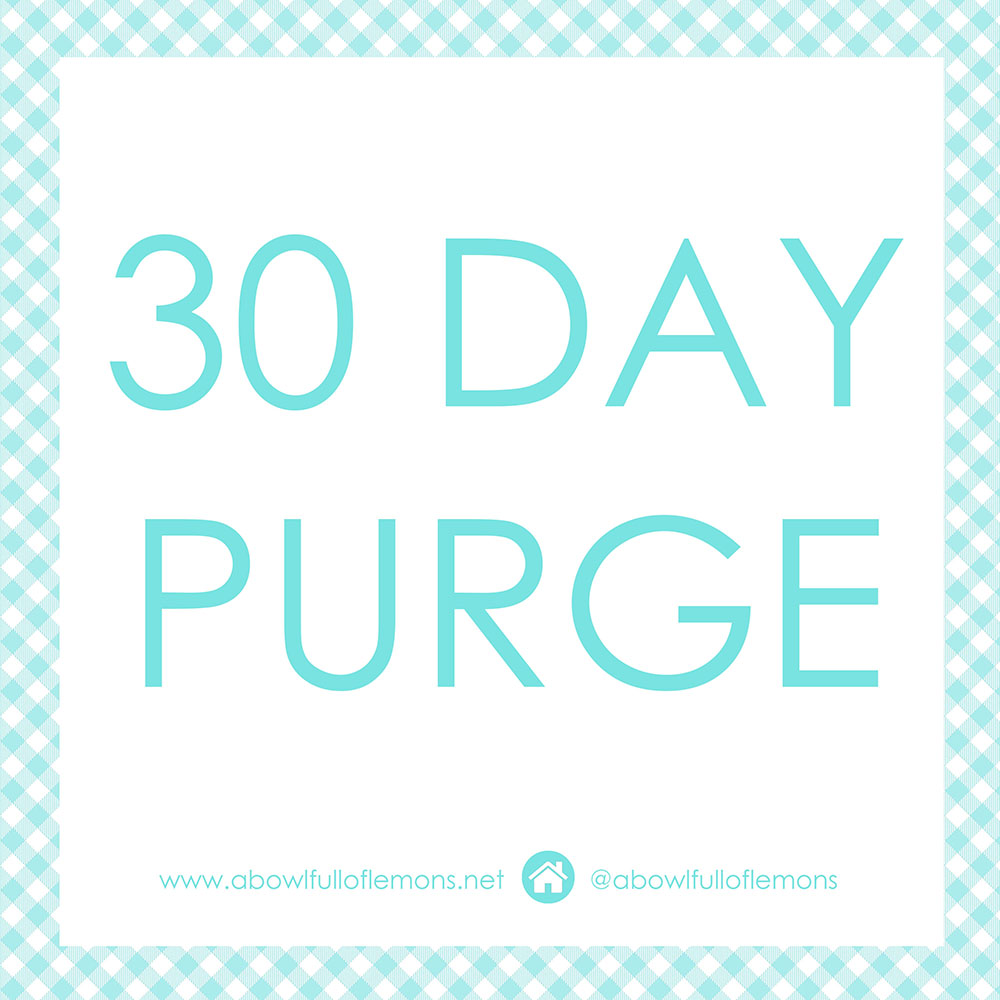

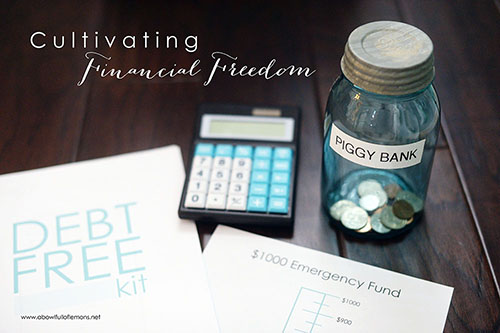
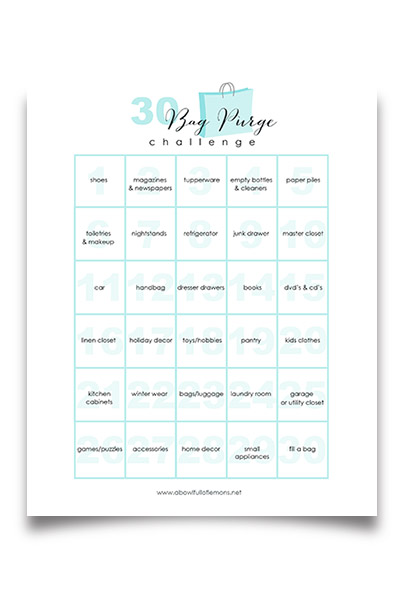
Thank you so much for this post! My family has talked about these things since I was a teenager, and I am so glad we did. We all now have what we call the “death book” which is just a notebook in the closet that points to things that maybe others will not think about.
The front page starts with “people to notify upon my death”. This sheet was particularly helpful when my father passed as he was a military veteran and there were many people that needed to be notified to get benefits rolling for my mother as soon as possible. What it comes down to is helping to plan ahead to make things easier for your loved ones who have to deal with all of that paperwork during a time of grief.
We also put some funny things in our notebooks too – a little surprise to leave behind. We remind each other to update them when things change in our lives, and to revisit them every new year to make sure they are up to date.
Hi Morgan,
Thank you for addressing a difficult subject that people generally do not want to deal with. Having your important items in order is one of the biggest gifts that you can give to your family.
Documenting your digital life is increasingly more important too.
Awesome blog post. not a fun topic, but so necessary. It takes one scare to make sure you have all of this in place, but often, it’s too late then.
Something I LOVE that Morgan included was the digital passwords!
Hello!
I just wanted to say this is awesome. In 2013 my grandfather passed away, kind of suddenly. He was actually in the process of getting everything together (finally) when he went. We had most of the information we needed, except his computer password(s). Definitely a great tip to keep those somewhere with other super important documents!